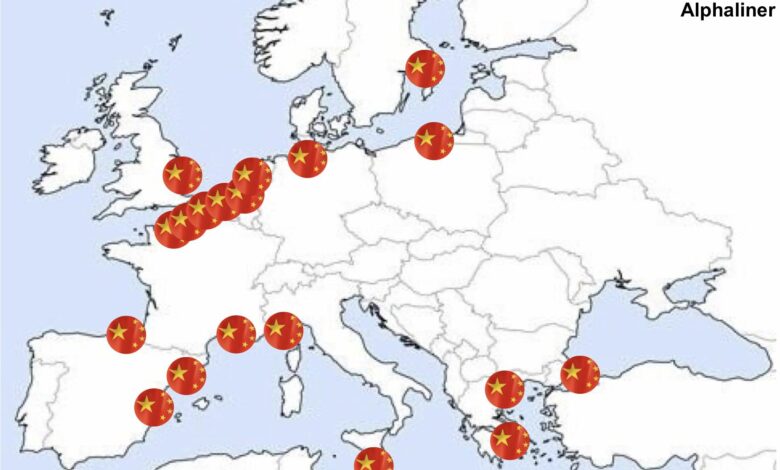Beijing’s global maritime operations double as intelligence-gathering outposts.
I was not aware that Chinese interests have installed operating software at quite a few ports around the world. Coupled with the Chinese Government’s mandate to share all information with the Chinese Government, we have an ideal spying network. Port traffic is a clear indication of material movements, and could give insights useful for military action.
The article in Foreign Policy, clearly labeled ‘argument’, suggests that the US government examine the risks and take actions to thwart the use of port information. It’s not unlike the US Government stance on Huawei components for cell phones. That fear led to a ban on Huawei selling components in the US.
Europe has a problem too. This map from Alphaliner shows which ports in Europe have Chinese interests.

Of course, they aren’t controlling except at Piraeus in Greece and Zeebrugge in the Netherlands. And 23 of them arise from state-owned Chinese interests, China Overseas Shipping Company (COSCO) and Terminal Link, a joint venture with liner company CMA CGM.
The EU adopted new rules last December that call for monitoring of potential threats posed by Foreign Direct Investment (FDI) in European assets.

By Elaine Dezenski, a senior director and the head of the Center on Economic and Financial Power at the Foundation for Defense of Democracies, and David Rader, a senior fellow at the Foundation for Defense of Democracies. SEPTEMBER 20, 2023, 4:46 AM
How China Uses Shipping for Surveillance and Control

By Gavin van Marle 21/09/2023
Are China’s ports and shipping companies being used to spy on the world?

Sam Chambers September 20, 2023

